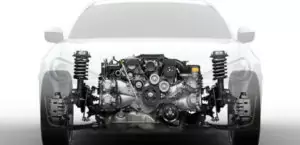The 1.4-liter turbocharged Volkswagen CTHA 1.4 TSI engine was assembled from 2010 to 2015 and put on a restyled version of the popular Tiguan crossover, as well as Sharan and Jetta. This unit belonged to the updated series and was significantly more reliable than its predecessors.
The EA111-TSI series includes: CBZA, CBZB, BMY, BWK, CAVA, CAVD, CAXA, CDGA, CTHA.
Specifications
| Production years | 2010-2015 |
| Displacement, cc | 1390 |
| Fuel system | direct injection |
| Power output, hp | 150 |
| Torque output, Nm | 240 |
| Cylinder block | cast iron R4 |
| Block head | aluminum 16v |
| Cylinder bore, mm | 76.5 |
| Piston stroke, mm | 75.6 |
| Compression ratio | 10.0 |
| Features | DOHC |
| Hydraulic lifters | yes |
| Timing drive | chain |
| Phase regulator | on the intake shaft |
| Turbocharging | KKK K03 & Eaton TVS |
| Recommended engine oil | 5W-30 |
| Engine oil capacity, liter | 3.6 |
| Fuel type | petrol |
| Euro standards | EURO 5 |
| Fuel consumption, L/100 km (for VW Tiguan 2012) — city — highway — combined |
10.1 6.7 8.0 |
| Engine lifespan, km | ~270 000 |
| Weight, kg | 130 |
The engine was installed on:
- Volkswagen Jetta 6 (1B) in 2010 – 2015;
- Volkswagen Sharan 2 (7N) in 2010 – 2015;
- Volkswagen Tiguan 1 (5N) in 2011 – 2015.
Disadvantages of the VW CTHA engine
- The main problems of this engine are related to detonation due to fuel quality.
- Often the pistons simply crack and then it is recommended to replace them with forged ones.
- The unit is prone to carbon formation on the valves, which is why the compression drops.
- The timing chain has a modest resource, it can stretch up to 100 thousand km.
- Often the electronic control valve fails and a little less often the wastegate of the turbine.
- Even on specialized forums, many complain about frequent antifreeze leaks in the intercooler area.






